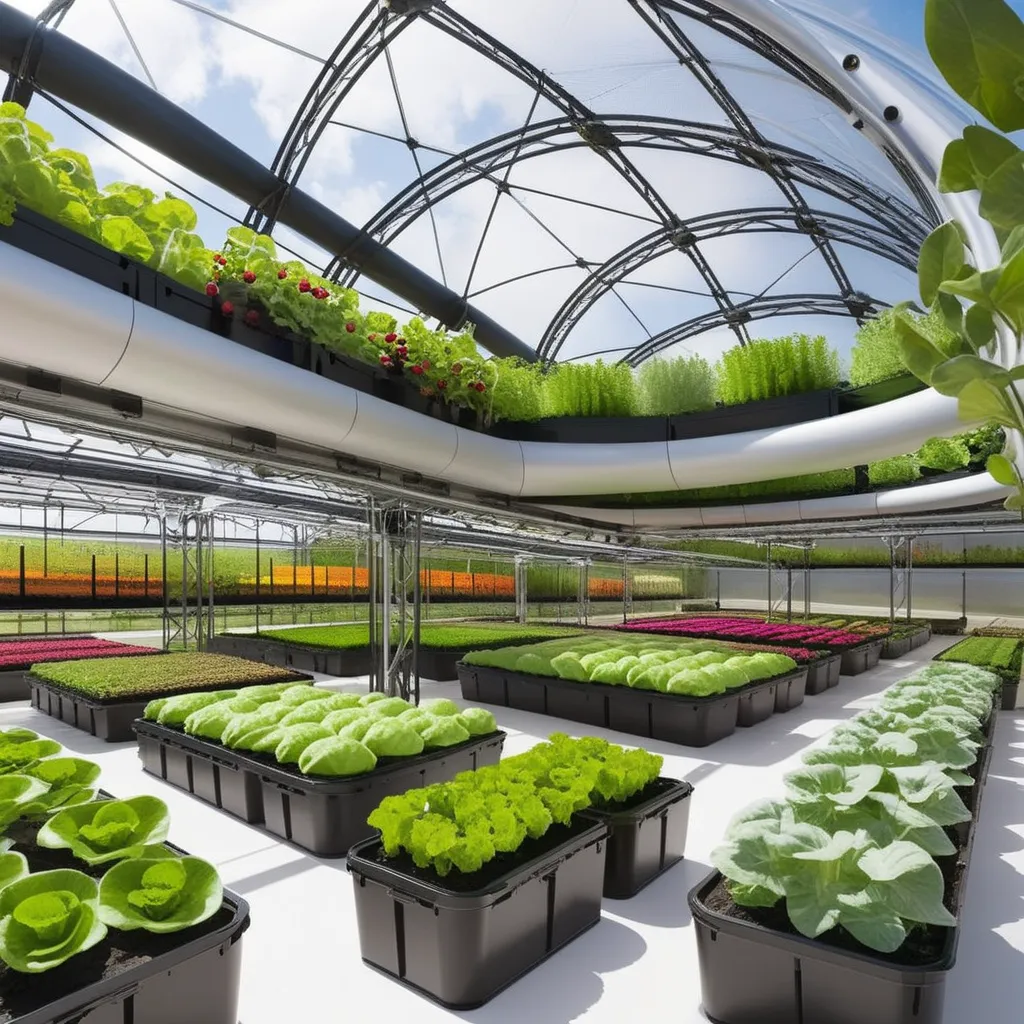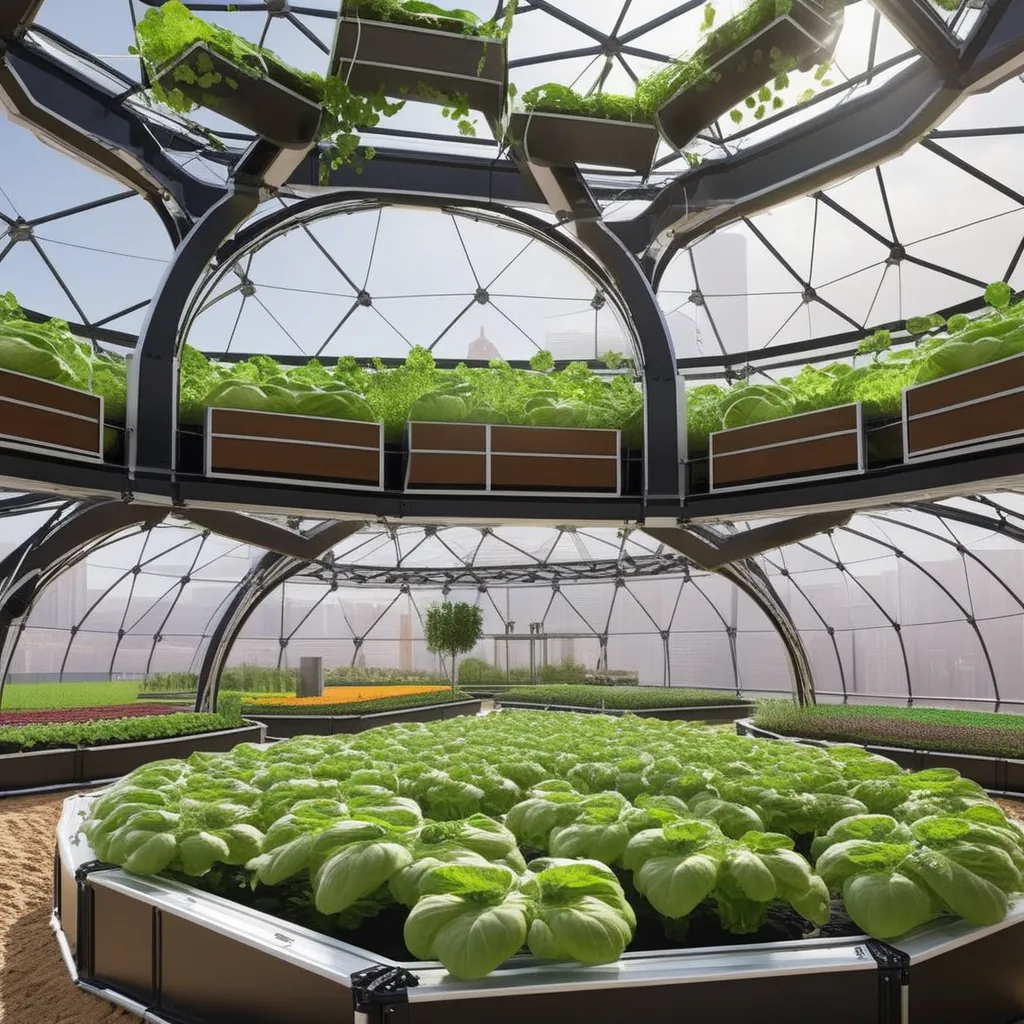AI-Powered Biodomes Revolutionize Urban Farming
In the heart of our bustling cities, a quiet revolution is taking place—one that promises to change the way we think about agriculture, food production, and sustainability. The advent of AI-powered biodomes is ushering in a new era of urban farming, offering fresh, locally grown produce all year round, and transforming concrete jungles into green oases of productivity and ecological balance.

A Growing Concern
Growing up in the city, I had always been aware of the stark contrast between the towering skyscrapers and the limited green spaces. As much as I loved the urban lifestyle, the disconnection from nature was palpable.
The Urban Farming Revolution
Urban farming is not a new concept, but it has faced numerous challenges, including limited space, adverse weather conditions, and the need for significant manual labor. However, recent advancements in AI technology are changing the game, making it possible to cultivate crops efficiently and sustainably in the heart of the city.
The Rise of AI-Powered Biodomes
AI-powered biodomes are at the forefront of this revolution. These high-tech structures combine the principles of traditional greenhouses with cutting-edge AI systems to create optimal growing conditions for a wide variety of crops. Here's how they work:
Controlled Environment
Biodomes maintain a controlled environment, with precise regulation of temperature, humidity, and light. AI algorithms constantly analyze data from sensors and adjust conditions to ensure the perfect growing environment for each plant.
Water Efficiency
Water scarcity is a growing concern, even in urban areas. Biodomes employ advanced irrigation systems that use water efficiently, reducing waste and environmental impact.
Pest Management
AI can detect signs of pests or diseases early, allowing for targeted interventions and reducing the need for harmful pesticides.
Crop Selection
AI algorithms assist in selecting the most suitable crops for cultivation, considering factors like available space, local demand, and environmental conditions.
Year-Round Production
I remember visiting one of the first AI-powered biodomes in my city. Inside, rows of vibrant green plants stretched out in all directions. It was hard to believe that such a lush oasis existed in the heart of the urban jungle.
Benefits of AI-Powered Biodomes
The adoption of AI-powered biodomes offers numerous benefits to urban areas:
Sustainable Food Production
Biodomes significantly reduce the carbon footprint associated with traditional agriculture by minimizing transportation and using resources efficiently.
Local Sourcing
Consumers can enjoy fresh, locally sourced produce year-round, reducing the need for long-distance food transportation.
Job Creation
The operation and maintenance of biodomes create job opportunities in urban areas, supporting the local economy.
Green Spaces
Biodomes contribute to the creation of green spaces in cities, improving air quality and providing a refuge from the urban hustle and bustle.
Education and Innovation
During my visit to the biodome, I noticed a group of school children learning about different types of plants and how they grow. It was a vivid reminder that these biodomes are not just about food; they are about education, too.
Challenges and Future Prospects
While AI-powered biodomes hold immense promise, they are not without challenges. High initial costs, energy consumption, and the need for skilled technicians are some of the hurdles that must be overcome. However, as technology advances and the benefits become more evident, the future looks promising.

A Greener Tomorrow
The integration of AI and biodomes into urban environments represents a significant step toward a more sustainable and greener future. It's a powerful reminder that with the right mix of innovation and determination, we can address some of the most pressing challenges of our time.
Conclusion
As I walked out of the biodome that day, I couldn't help but feel a sense of hope. In the midst of our concrete cities, a green revolution was taking place, one that had the potential to change our world for the better.
AI-powered biodomes are not just about growing food; they are about reshaping our urban landscapes, reconnecting us with nature, and making our cities more sustainable. The future of urban farming has arrived, and it's looking remarkably green.

No comments:
Post a Comment